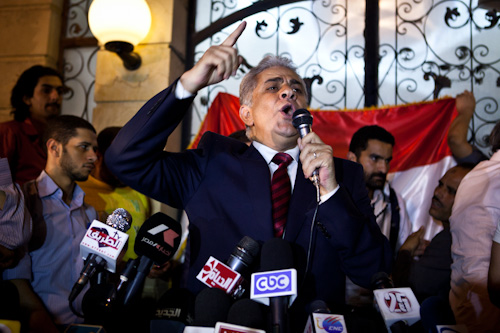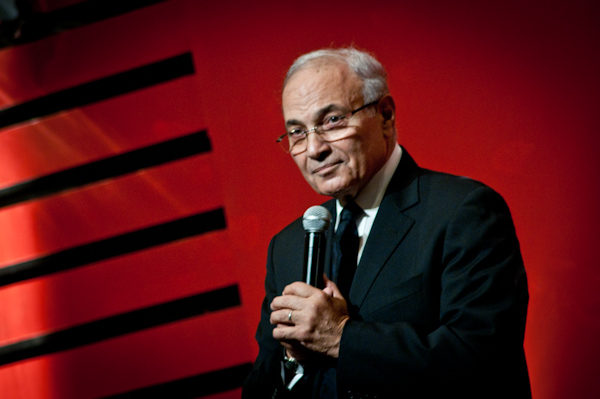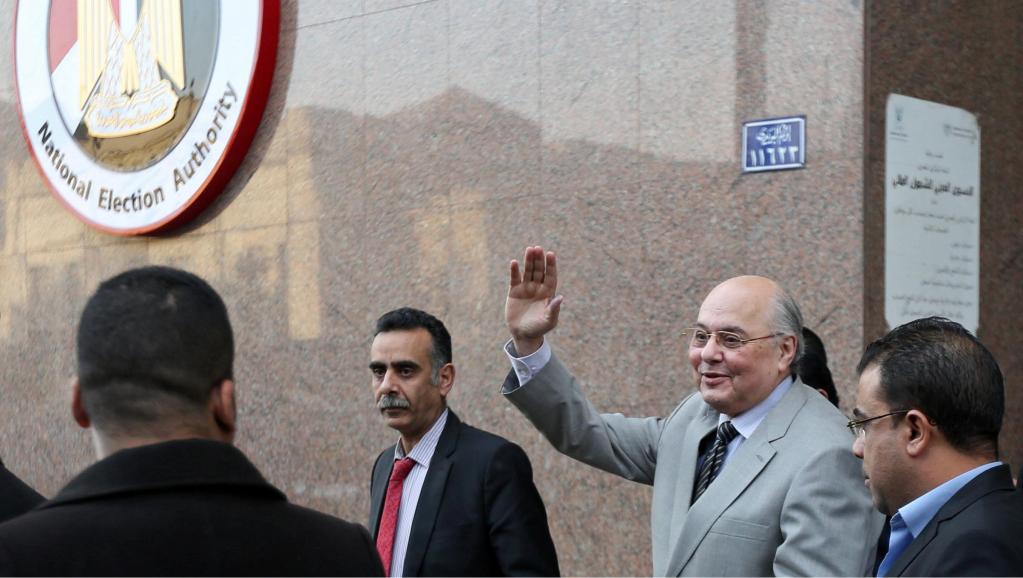
Hamdeen Sabbahi, the candidate who finished in a surprise third place in the presidential race, thanked God and the Egyptian people on Twitter for the votes he garnered.
The Sabbahi campaign said supporters had written to him and vowed they would still vote for him in the runoffs, although he is no longer a contender. His campaign rejected the results of the first round of the presidential election, from which the Muslim Brotherhood's Mohamed Morsy and former Prime Minister Ahmed Shafiq emerged on top.
The campaign condemned the rejection of Sabbahi's appeal, alleging that police personnel, who are legally banned from voting, were allowed to cast ballots for Shafiq.
“We were shocked by the results,” said Ahmed Sabry, a member of Sabbahi’s campaign. “The appeal was rejected for mysterious reasons, discarding the evidence we had presented.”
The commission denied in a press conference earlier on Monday that any conscripts voted in the elections.
He added that many members of the campaign plan to boycott the runoffs, although Sabbahi left them the choice.
“Both candidates are bad,” Sabry said.
Sabbahi’s lawyer, Essam al-Islambouli, said the Presidential Elections Commission accepted Shafiq’s re-entry into the presidential race although he was excluded by the recently passed political isolation law — a decision he believes interferes with the affairs of the Supreme Constitutional Court and renders the election illegitimate.
At the time, the commission said that it would not apply the law, which is being reviewed by the Supreme Constitutional Court, due to concerns about its constitutionality.
In his appeal, Islambouli requested that Sabbahi be allowed to compete in the runoffs, given the possibility that Shafiq could be removed from the race if the law passes constitutional muster.
“In that case, Shafiq would be excluded again and the runoffs would be held with only one contender,” he said.
Islambouli also claimed that Article 40 of the Presidential Elections Law, which provides for a runoff between the two candidates with the highest votes, is void because Shafiq and Morsy together did not obtain over 50 percent of the total number of votes.
However, his claims are unlikely to be honored as the law is widely interpreted to call for a runoff if one candidate does not receive an outright majority in the first round, not if the two top candidates do not receive a majority together.
“I shall demand that the runoffs include three candidates,” he said.
“The Egyptian people and the national and revolutionary forces are free to react to the election in a way that respects the will of the people and does not impose a certain option, but that at the same time rejects any fraud or manipulation of their will," the Sabbahi campaign said in a statement Monday.
“We are confident the results of the election would not compel Egypt to accept the tyranny of the religious stream or the reproduction of the former regime that was toppled by the revolution,” the statement read, calling on national, revolutionary, democratic and civilian forces to unify and search for “democratic mechanisms” to reach their objectives.
“The total combined votes given to the candidates of the revolution reveal that the Egyptians chose to complete their revolution and achieve their goals of freedom, social justice, human dignity and national independence,” the campaign said.
The statement denounced the Presidential Elections Commission for rejecting appeals based on reports of vote-buying and other irregularities, as well as for the constitutional protection of the commission against legal challenges.
The campaign vowed to continue the common struggle for a “free, just and independent homeland, where the people are the source of sovereignty and power.”
It went on to pay tribute to “the real leader in this battle, which is the average citizen who gave us his vote, the revolutionary youths who saw that our candidate best represents them, the public figures who supported us, and the farmers, the workers, the middle class and the poor people of Egypt who are eager for real social justice.”
Edited translation from Al-Masry Al-Youm



